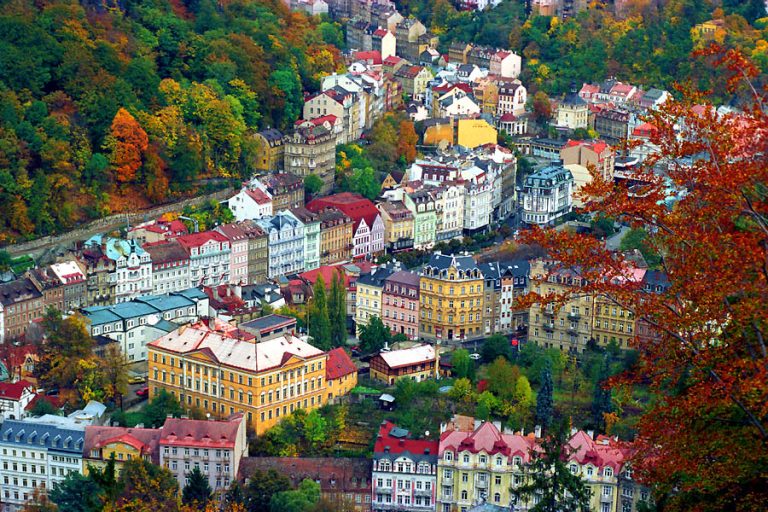Pfeffer Ferklova said the Russians living in Germany were mostly EU citizens and they should be treated accordingly. Photo credit: Jialiang Gao, www.peace-on-earth.org – Original Photograph, CC BY-SA 3.0.
Karlovy Vary, West Bohemia, Dec 7 (CTK) – Karlovy Vary opposition politicians have asked the local information centre to stop its marketing campaign mainly targeting Russians living in Germany, as they are often openly supportive of the Russian aggression in Ukraine, they wrote in an open letter to Mayor Andrea Pfeffer Ferklova (ANO).
Adam Klsak (STAN), the author of the letter, said the town should be looking for clientele other than Russians, who used to be very numerous.
Pfeffer Ferklova told CTK, however, that the Russians living in Germany were mostly EU citizens and they should be treated accordingly.
The letter notes that those living in Europe of Russian origin mostly do not actively criticise the war, and in fact some have held meetings in support of the Russian regime.
They also point out that the Czech Republic has been providing asylum to a large number of Ukrainian refugees, which could hypothetically lead to a security threat for this “very vulnerable group.”
For years, the Russian presence in Karlovy Vary has been very prominent, as there were many visitors, who often stayed there for a long time. Many hotels thus specialise in Russian visitors.
This started to change after Russia invaded Crimea in 2014, and the city also suffered from the lack of tourists during the COVID-19 pandemic. Ever since the start of the Russian war against Ukraine in February, Russians have comprised only a small part of the spa-town visitors.
This year, Russians comprised 1.2% of visitors to the Karlovy Vary Region, and 4.5% of overnight stays.
The mayor says that the marketing campaign “has not been targeting Russia, only people who live in Europe, mostly in Germany, and speak Russian.” She adds that these people are Russian-speaking EU citizens, who must be treated as a separate market from the Russians who live in Russia.
The critics, however, call for the town to shed its reputation as a “Russian town”, and become a “safe harbour of free-spirited people from all around the world, including Russia.”
“We must accept the fact that the massive influx of tourists from the totalitarian and now officially terrorist Russian Federation to Europe has ended,” the authors of the letter added, referring to the European Parliament and some European national parliaments designating Russia as a country supporting terrorism.








